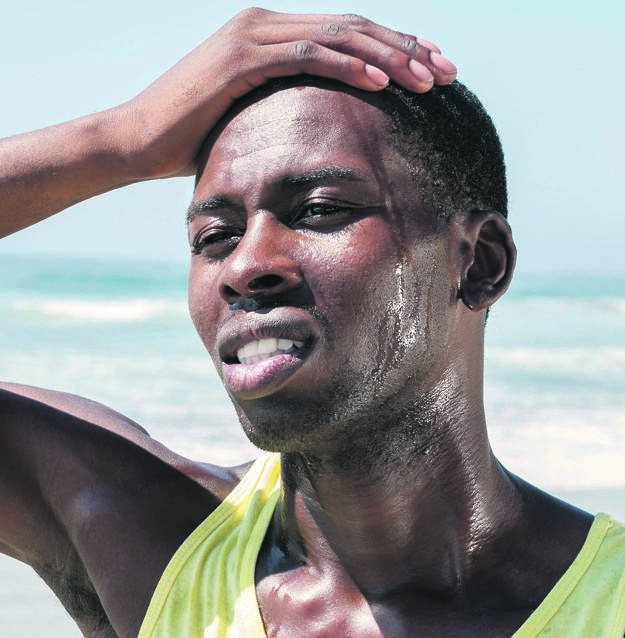
New article finds that more homicides are committed on hotter days in SA
It’s a common phrase, “hot and bothered”.
But it will have increased relevance as climate crisis researchers are increasingly looking at how heat may be triggering the rates of violence in South Africa.
As the world grapples with the effects of increased temperatures and extreme weather events, a new paper written by South African and international researchers estimates that the current number of homicides in the country could be set to increase should the temperature rise by 1°C.
Our planet’s temperature has increased by 1°C above pre-industrial levels as a result of excessive carbon emissions being trapped in the earth’s atmosphere, and according to last year’s Special Report on Global Warming by the Intergovernmental Panel on Climate Change (IPCC), global heating is likely to reach 1.5°C between 2030 and 2052 if it continues to increase at the current rate.
That report highlighted a number of consequences of the climate crisis that could be avoided by limiting global heating to 1.5ºC, as opposed to 2ºC or more.
However, researchers in the latest paper published in the latest edition of the SA Medical Journal say that understanding the connection between heat and violence is becoming increasingly important as we witness the heating of the planet, and anticipate more intense and longer lasting heatwaves in future.
The article’s lead author, Associate Professor Matthew Chersich, from the Wits Reproductive Health and HIV Institute, told City Press that heat was more of a public health danger than we may think.
“The thing is, people think heat is something normal and to be tolerated – they don’t see it as something abnormal that could be a threat to behaviour, your health and your food. So the thinking is ‘when it’s hot, just cope and change your clothes’ – so it’s seen as something normal yet it’s dangerous,” he said.
“Global heating is really changing the weather patterns. We had two cyclones in Mozambique, that’s climate crisis; in France it was 45°C last week, that’s climate emergency. The drought in Cape Town, that was climate crisis, the floods in Durban – climate crisis. Climate affects everything in humans too, from preterm labour to violence, aggression and nutrition. There’s not a single part of life it doesn’t affect.”
In the paper titled Violence in hot weather: Will climate change exacerbate rates of violence in South Africa?
Chersich and his four co-authors noted how heat exposure is known to give rise to a range of physiological conditions affecting an individual’s levels of comfort, emotional stability and sense of wellbeing.
However, raised temperatures alone are not the sole cause of violence as the causes are known to be complex and driven by a number of factors.
But it may rather act as a trigger for individual violent episodes.
And being in an uncomfortably hot environment has been shown to foster irritability and aggressive thoughts, reducing more positive emotions.
“Men appear to be particularly sensitive to the effects of heat on aggression. Hot weather also alters behaviour, for example, resulting in people tending to congregate outdoors, with increased opportunities for contact crimes and violence,” the report found, referencing previous studies on gender differences in response to temperature.
“Additionally, alcohol use, a potent trigger for violence, can increase during hot weather.”
Only a few studies so far have looked at the impact of temperature on rates of violence in South Africa.
But a study in Tshwane published last year assessing five years of temperature and crime data found that violent crime incidents increased by 50% on hot days, compared with colder ones.
The researchers summed up the established evidence on the association between temperature and murders, and of the 16 targeted studies in the field, nine reported an increase in homicides with a rise in temperature.
“Based on the findings of these studies and using a conservative estimate of a 4%-5% increase in homicides per degree rise in temperature, we estimate that the current number of homicides per year in South Africa (20 336 according to latest Stats SA figures) will increase by between 800 and 1 000 should temperatures increase by 1°C,” the researchers noted.
However, they added that more direct research and using empirical data would be needed to refine this estimate.
The paper also stated that more work was needed for a detailed as well as a nuanced understanding of the heat-health interactions, which could then help inform measures taken during heatwaves.
“For example, the police force could be primed to expect more cases of violence on days with high temperatures. Similarly, health services, especially trauma units, could prepare for an increased number of assault cases,” the report found.
Chersich said: “With all research you try to influence policy, get people talking about the issue and try to raise funding for more research and try to get it on agendas. People don’t really think of violence in that sense [related to heat] and so it hasn’t been made an issue really ... especially violence in schools which could be worse on hotter days. And it’s small stuff people could do to try mitigate that – like have cooling rooms available.”
Another research study out this month, by the International Labour Organisation, looked at the impact of heat stress on labour productivity and decent work.
The study projects that an increase in heat stress resulting from the climate crisis will lead to global productivity losses equivalent to 80 million full-time jobs by 2030.
 |
| ||||||||||||
| |||||||||||||




 Publications
Publications
 Partners
Partners








